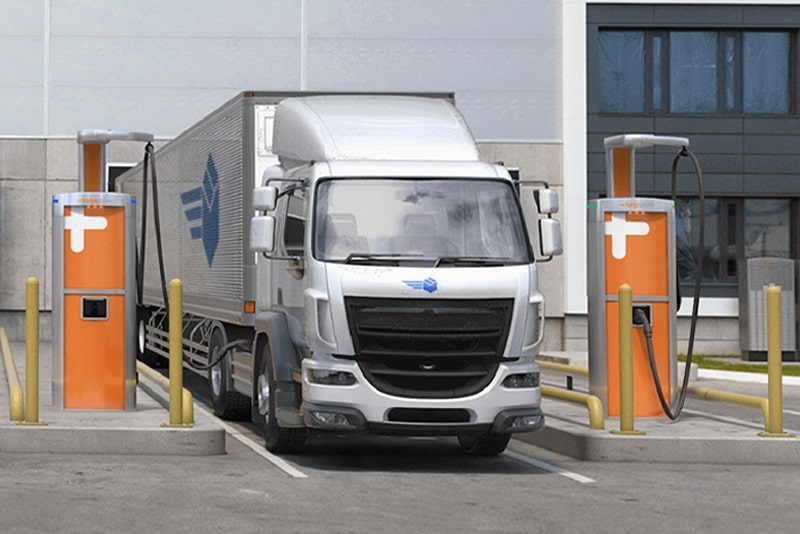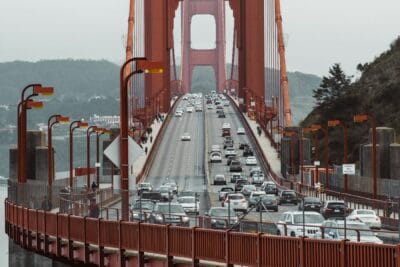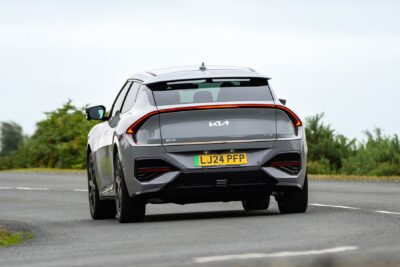Way is clear for new CO2 standards for lorries and buses in the EU
According to the press agency dpa, it can now be decided that CO2 fleet emissions from trucks over 7.5 tonnes and coaches must be reduced by 45 per cent from 2030, 65 per cent from 2035 and 90 per cent from 2040. These targets are in line with the Commission’s original proposals. In the case of city buses, the resolution should provide for a 100 per cent reduction in CO2 fleet emissions by 2035. In the Commission’s original draft, the target for this was 2030. An interim target of 90 per cent is now to apply to city buses for 2030.
The Council and Parliament had actually already reached a provisional agreement on the new CO2 standards for lorries and buses in the EU in mid-January. The biggest hurdles were thought to have been cleared since then. However, in recent days it has become apparent that the entire EU’s plan could once again be torpedoed by Germany’s smallest governing party, the FDP. In fact, according to the Frankfurter Allgemeine Zeitung and the news agencies dpa and Reuters, the Liberal party unexpectedly vetoed the planned limit on CO2 emissions from trucks and buses. This would have forced Germany to abstain from the final vote.
EU Commission accommodates German FDP
However, the German government is now said to have made a mediation proposal to the EU Commission, which the latter has accepted, reports dpa, citing government circles. This essentially concerns a back door for lorries refuelling with e-fuels in the future. This had overcome the reservations of the FDP, which had previously been in favour of a “technology-open” solution.
Therefore, the commercial vehicle limits can be given the green light in the vote scheduled for today in the form mentioned at the beginning. In return, Germany has received a commitment from the Commission that “the so-called trialogue should be reopened and a binding regulation inserted – in order to allow lorries that can demonstrably only be refuelled with e-fuels to be approved indefinitely”, writes dpa. It is therefore apparently about a later review of the regulation, which is scheduled for 2027.
A similar threat by the FDP to allow a package that had already been put together to collapse at EU level in order to achieve concessions for e-fuels already occurred almost a year ago with the fleet limits for cars. At that time, too, there was first a dispute and then a compromise with the Commission – and a few days later, the de facto end for combustion engines was decided. The FDP received the concession of a reference to e-fuels in the regulation and the promise that the Commission would submit a proposal for the authorisation of vehicles “that run exclusively on CO₂-neutral fuels after 2035”.
Either way, a complete ban on combustion engines for lorries is now off the table, unlike in the city bus and car sectors. The political consensus at the EU level is to reduce CO2 emissions by 90 per cent compared to 2005, but it is clear that the 90 per cent reduction will not be achieved with more efficient combustion engines, but only with large-scale electrification. In some cases, where neither a battery-electric drive nor a fuel cell vehicle can be operated well and competitively, diesel lorries (and coaches) can still be registered after 2040.
Three categories are not covered by the regulation:
- Small series manufacturers and vehicles for mining, forestry and agriculture
- Vehicles for use by the armed forces and fire brigade
- Vehicles for use in civil defence, public order and medical care
Exception for professional vehicles
A separate regulation also applies to so-called professional vehicles, such as refuse collection vehicles and concrete mixers: they are only to fall under the scope of the regulation from 2035, meaning that the 2030 interim target of -45 per cent would not apply here. However, they will have to fulfil the requirements from 2035 (-60 per cent), so the delay is only short. Instead, the Commission will examine the possibility of extending the CO2 targets to smaller vehicles up to five tonnes.
The agreement also contains another interesting point: Parliament and the Council have agreed on a definition of ‘e-trailers’. This is intended to create legal clarity “and adapt the existing regulation to the technical developments in this new type of trailer”. This is intended to recognise the potential of e-trailers to contribute to CO2 reduction.
heise.de (in German)





0 Comments